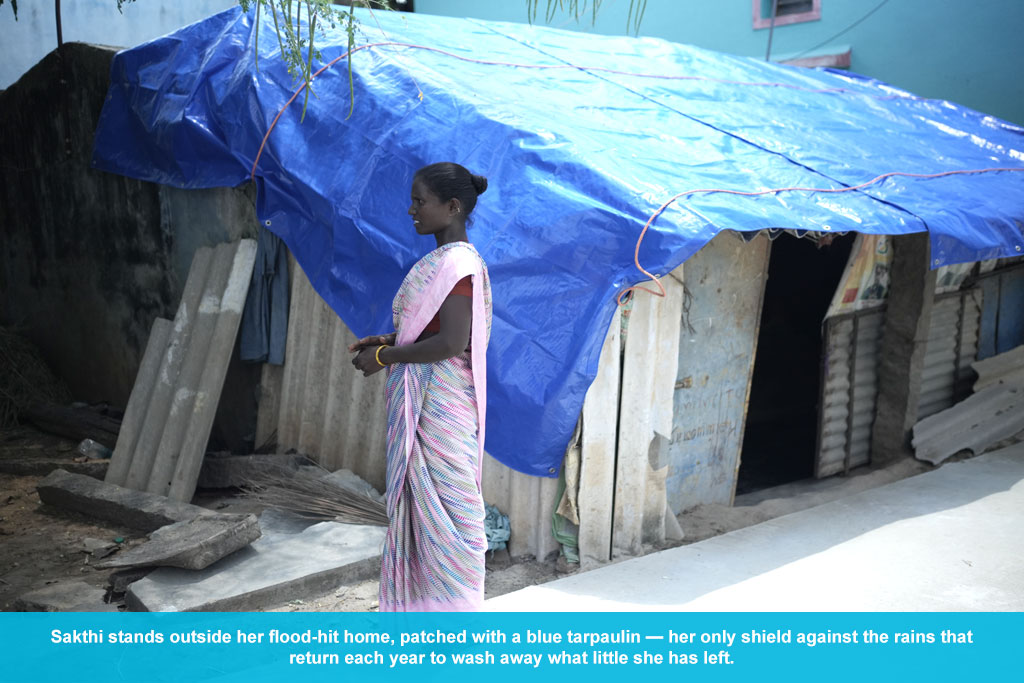Sakthi (34), lives in Vembi village located in Villupuram district of Tamil Nadu with her two children, Sanjay (11) and Hemavathi (9). Three years ago, her husband Murugan was fatally struck by lightning while herding cattle, leaving Sakthi to navigate life as a widow. The recurring floods in her neighbourhood have only intensified her struggles, as each monsoon brings the same devastating consequences — her house gets waterlogged and the floors remain soaked for weeks, causing significant damage.
“Every time it rains, our house gets flooded,” Sakthi explains. “We use utensils to collect the water and pour it outside, but the water keeps coming in. The fields get flooded too leaving us without work during these times, which makes it even harder to provide for my children.”
When Cyclone Fengal triggered severe floods across the coastal belt of Tamil Nadu in December 2024, Sakthi sent Sanjay and Hemavathi to a relative’s house for safety while she stayed behind to protect their home. “It took me two weeks, using jute bags and mugs, to drain the water from our home,” shares Sakthi. Despite her best efforts, the flooding and damage left her exhausted. “I cleaned the house alone, staying inside while the water was still on the ground. My children were safe, but I could not prevent the devastation,” she further adds.
Sakthi earns around ₹150 to ₹200 per day through agricultural labour and odd jobs, but this is barely enough to meet their daily needs. “Whatever little I earn is not enough to cover all our expenses,” Sakthi shares.
Through Habitat for Humanity India’s Housing Disaster Resilience and Response (HDRR) programme, Emergency Shelter Kits (ESKs) were provided to 1,206 families like Sakthi’s who were impacted by Cyclone Fengal. The kits were distributed to the families belonging to the Irular (commonly known as Irula) tribe and other marginalised communities residing in Koliyanur, Vikravandi, Thiruvennai Nallur, Kandamangalam and Kanai blocks of Villupuram district. Designed to offer immediate relief, the ESKs help families build temporary shelters or carry out basic repairs to their damaged homes, creating safe spaces until more permanent solutions can be put in place. Each kit consists of tarpaulin sheets, ropes, nails, a claw hammer, tie wire, pliers, a hoe, handle and plastic sheets. Habitat for Humanity India follows a ‘Pathways to Permanence’ approach of responding to disasters in a phased manner - beginning with immediate relief in the form of emergency shelter kits, followed by home repairs or transitional shelters and ultimately supporting families to build disaster-resilient permanent homes.
“The tarpaulin sheets were a huge help. They kept us dry,” Sakthi says. “The tools were useful to carry out repairs and to make our house a little stronger. Without this support, we would have been completely overwhelmed.”
Donate now to make a difference.



